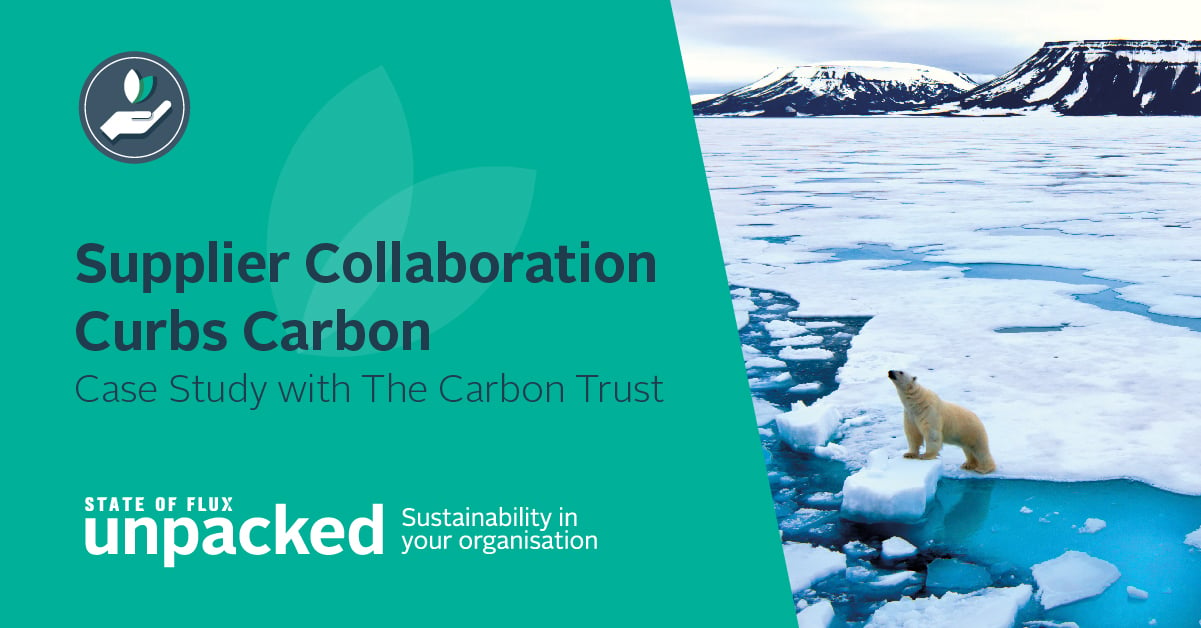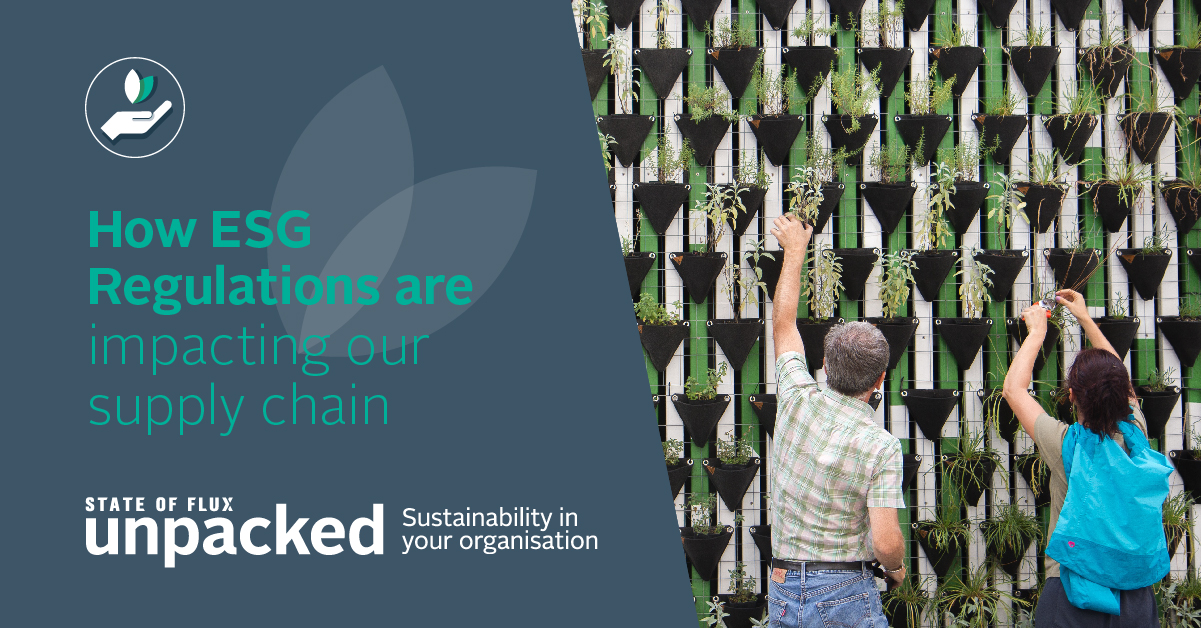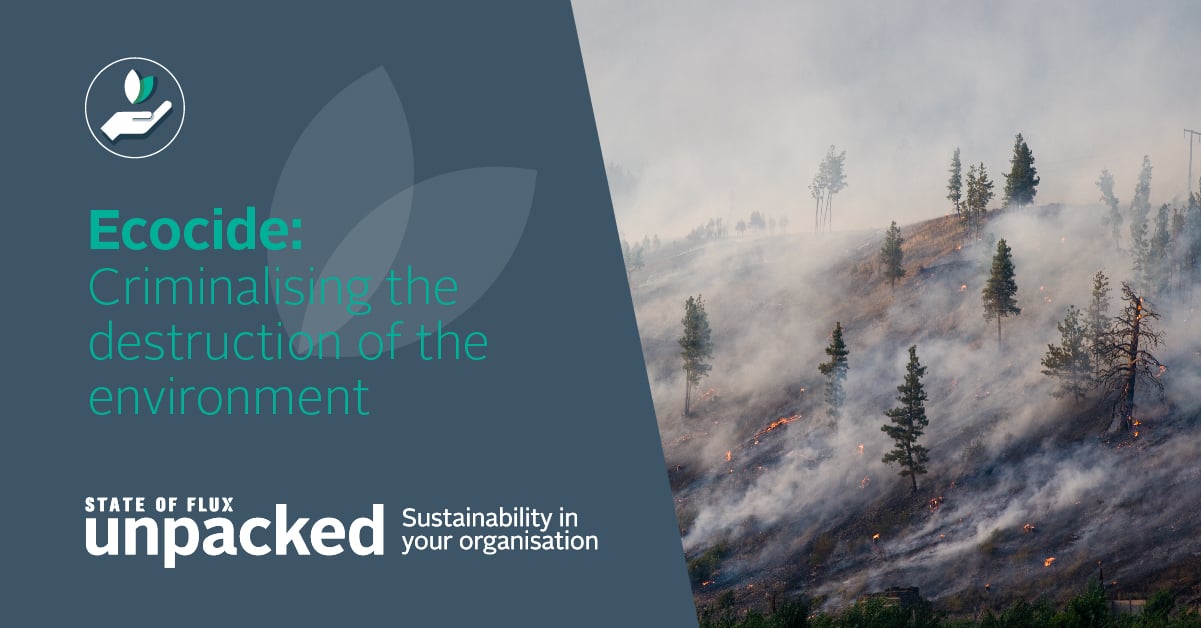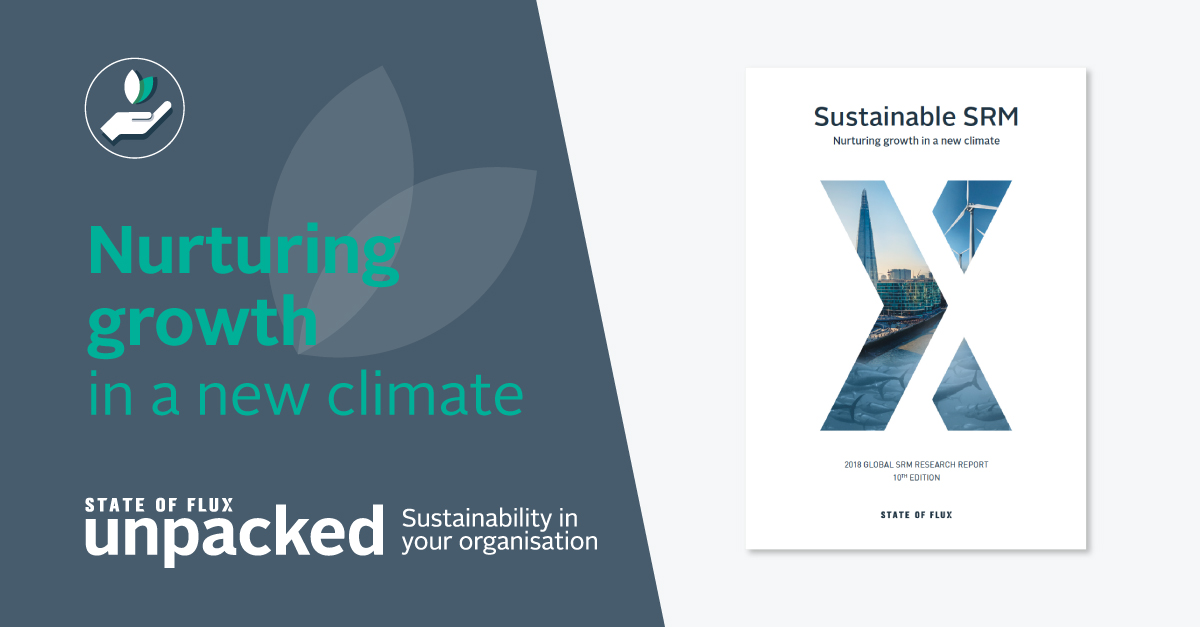THE PARADOX OF THE ECO-BILLIONAIRE: A DEBATE ON THE ESG AGENDA
Who are the Eco-Billionaires?
Just as industrialisation in the 19th century spawned family dynasties such as the Rockefellers and Vanderbilts, the blossoming ‘green wave’ has created a new generation of entrepreneur – the ‘eco-billionaire’. As of last year there were 34 billionaires whose fortunes came from clean energy products, 19 of these achieved this for the first time in the past year alone1. Whilst the connotations behind ‘billionaire’ frequently comprise of gas-guzzling superyachts and private jets, the myriad of entrepreneurs who have made billions on lithium-ion batteries and solar energy prove that you no longer need to plunder our crude oil reserves to come out on top – in fact the exact opposite is becoming a reality.
Consumers are at the forefront of applying pressure when it comes to sustainability or environmental, social and governance standards (ESG). Whether it’s complying with legislation or avoiding public relations scandals, companies can no longer afford to conduct business in traditional ways where profit is the only indicator of value. As of 2019, 90% of S&P 500 companies issued reports on ESG standards2. This pressure to ‘go green’ comes to life when observing the trends in financial markets – the figures speak for themselves. In 2012, a total of $3.74 trillion was invested under sustainable mandates in the United States; in 2018, there was $12 trillion – this is nearly a fourfold increase in six years3. This change is driven by a commitment from investors to integrate ESG factors into their investment decisions - the UN organisation Principles for Responsible Investment manages around $80trn of assets dedicated towards sustainable investments alone4. This figure encapsulates the sheer magnitude of opportunity available for businesses if they are to consider making their business model sustainable.
"companies can no longer afford to conduct business in traditional ways where profit is the only indicator of value"
Why do Eco-Billionaire’s exist?
Whilst the eco-billionaire’s interest in sustainability may be an expression of true altruism, other motives should be considered: the business case for environmentalism has never been so strong. Investing in a green future is fast becoming a secure high-growth investment, and by the nature of the term ‘sustainability’ its longevity is implied – quite simply it pays to go green. The value of sustainable investments continue to increase dramatically year on year (see figure 1). Not only is the environmental movement supported by almost the entirety of Generation-Z and Millennials (who will soon make up the majority of the workforce), but with the backing of international institutions and public figures this can no longer be categorised as a trend or ‘bubble’ that is bound to ‘burst’; it is undeniably here to stay. The UN has calculated that a funding gap of $2.5trn a year is needed to reach their Sustainable Development Goals by 2030 and this presents a massive opportunity to invest in companies that are providing sustainable solutions5.
Figure 1 4
The big debate
Talking of ‘bursting bubbles’, nothing demonstrates the influence of the billionaire more than the tumultuous rise and fall of cryptocurrency in recent years. Elon Musk sent shockwaves through bitcoin and cryptocurrency markets in May 2021 after tweeting: "Cryptocurrency is a good idea on many levels and we believe it has a promising future, but this cannot come at great cost to the environment."6 Bitcoin subsequently crashed to around $30,000 from its record breaking peak of $65,0007. The tycoon’s influence was proven again later last year as he announced Tesla would resume taking bitcoin payments if they are to use 50% clean energy usage, this sent the price upwards by 12%8. Musk’s concern about bitcoin’s eye-watering energy demand is admirable, but when billionaires are able to change the landscape with one haphazard tweet - the question arises as to what sort of future would exist if billionaires were given free rein on our journey to sustainability.
Figure 2 9
Undoubtedly the legacy of eco-billionaires is a lesser evil than fortunes built on petro-chemicals and South-East Asian sweatshops, but as billionaire’s fortunes rose last year by 27%, extreme poverty and carbon emissions continued on an upwards trajectory10: there are winners and losers in every transaction. To complicate matters, poverty comes with greater exposure to climate risks. The rich will be hurt least and last by planetary disaster whilst the poor are disproportionately affected. By this logic, the distribution of resources to affected communities will have a more far-reaching positive impact on climate change mitigation and adaption.

Navigating Modern Slavery
A possible solution?
Furthermore, research suggests that the richer people are, the less likely such knowledge of a climate crisis is going to trouble them11. Surely then the onus of climate change mitigation falls solely on the worst affected communities. This is why many academics are a proponent of grassroots movements.
Grassroots movements refer to collective action at a local level to form the basis of political or economic movement – put simply, it is concerned with ‘bottom-up’ rather than ‘top-down’ decision making. Empowering local communities to mitigate climate change is an idealistic notion, however when the average billionaire does more damage to the biosphere in 10 minutes than most Africans inflict in a lifetime, is this a deflection of blame? A recent study by Oxfam suggests that the wealthiest 1% of the world’s population were responsible for the emission of more than twice as much carbon dioxide as the poorer half of the world from 1990 to 201512. This is where a lack of community involvement becomes an issue, frequently there is a disparity between investor interest and societal needs. If investors and innovators were less concerned with billionaire status and accumulation of wealth, surely the impacts would be much further reaching? Targeting investment towards small businesses and/or grassroots movements helps tackle the issue of income inequality. Considering the super wealthy are the main contributors to ecocide, levelling the playing field is an attempt to offset this imbalance and give local communities autonomy in their own social mobility and education.
"A recent study by Oxfam suggests that the wealthiest 1% of the world’s population were responsible for the emission of more than twice as much carbon dioxide as the poorer half of the world from 1990 to 201512"
A business can bridge this gap by proactively re-evaluating its supply chain and procurement functions. Procurement and supplier management are key for organisations to contribute positively towards their social and environmental footprint, and with an advancement in these business functions, the value in sustainability for the organisation can be released. As a recent example, market leader’s in the ‘fast moving consumer goods’ (FMCG) industry have put responsible sourcing at the core of their organisation, driving brand value and corporate social responsibility objectives. Using traditional local knowledge and exclusively partnering with local communities not only empowers these communities but allows for potential innovations – a true win-win relationship. Their commitment towards sustainable supplier management has a profound impact and is a clear example of the positive social impact companies can generate through responsible sourcing. Environmental activist and UN board member Hindou Oumarou Ibrahim is a proponent of using modern technology and indigenous knowledge to tackle climate change: ‘I think that if we believe technology alone is going to save us then we are totally mistaken.’13 Through a supplier management lens, this point perfectly summarises the value of incorporating different local expertise into global supply chains, and in turn allowing corporations to use their capital to support change through supplier diversity.
Concluding thoughts
Therefore, the existence of the eco-billionaire is not an immediate cause for concern, nor is it a panacea to all our problems. Billy Parish, founder of Mosaic solar panel group quotes: “We wouldn’t be around if individuals hadn’t used some of their private wealth to back us.”14 He makes the point that in a world where wealth is synonymous with power and influence, the role of the eco-billionaire is quite potent when capital is allocated effectively. The duality of enormous investment power and a dedication to sustainability provides a crucial opportunity. To conclude, in this ever increasingly dystopian world, perhaps the billionaire tech superhero is more than just science-fiction.
The next steps for organisations
The vast majority of a company’s social and environmental imprint sits within the supply chain – it is therefore critical to work in conjunction with suppliers on sustainability factors. State of Flux are experts in the field of supplier management and we believe that it is the core ingredient in creating long-term sustainable advantage. We help organisations facilitate discussions to work and engage with strategic suppliers more effectively and our approach is backed by thirteen years of world-leading proprietary research. With a global team spanning three regions, State of Flux is well positioned to consult both multinational and regional organisations on the impact of their supply chains on the sustainability agenda.
State of Flux are experts in supplier relationships with over 17 years consulting experience, complimented by a supplier management technology solution and customer education offerings.
A strong consulting, technology and training approach means State of Flux are well placed to assist you in working more collaboratively with your supply chain to manage and mitigate your sustainability impact. This will enable development of a comprehensive programme which will deliver value and benefit to your organisation.
References:
- The 10 Richest Green Energy Billionaires In 2021 (forbes.com)
- A brief introduction to the GRI reporting framework | Goby (gobyinc.com)
- Sustainable investing is leading the charge for corporate change (northbaybusinessjournal.com)
- Shifting the focus towards sustainable finance | World Finance
- Energy investment opportunities that can drive Sustainable Development Goals — BUSINESS FOR 2030
- Elon Musk and Bitcoin miners say they want to address crypto’s sustainability problem - The Verge
- Bitcoin price: Why is crypto down today? Crypto news and prices of BTC, Ethereum, Dogecoin, Solana as crypto crashes | The Scotsman
- Bitcoin price back above $40,000 after Elon Musk comments | Bitcoin | The Guardian
- Elon Musk ( Bitcoin trashing guy) is tweeting - High time for a carbon tax! (forexlive.com)
- Billionaires see fortunes rise by 27% during the pandemic - BBC News
- For the sake of life on Earth, we must put a limit on wealth | George Monbiot | The Guardian
- World's richest 1% cause double CO2 emissions of poorest 50%, says Oxfam | Greenhouse gas emissions | The Guardian
- Hindou Oumarou Ibrahim, the woman putting up a global fight to preserve indigenous communities – The Beam (the-beam.com)
- Green entrepreneurs look to make money and a difference | Financial Times (ft.com)

AUTHOR - Cameron Jeffery (Analyst)
Cameron is an analyst in our EMEA team and has supported many of our clients on their SRM journey, whilst also helping drive internal development across sustainability and social value. Prior to joining State of Flux in 2021, Cameron received his undergraduate degree in Economics before achieving an MSc in International Development and Security at the University of Bristol.
DON'T STOP THERE...WE HAVE MORE CONTENT FOR YOU
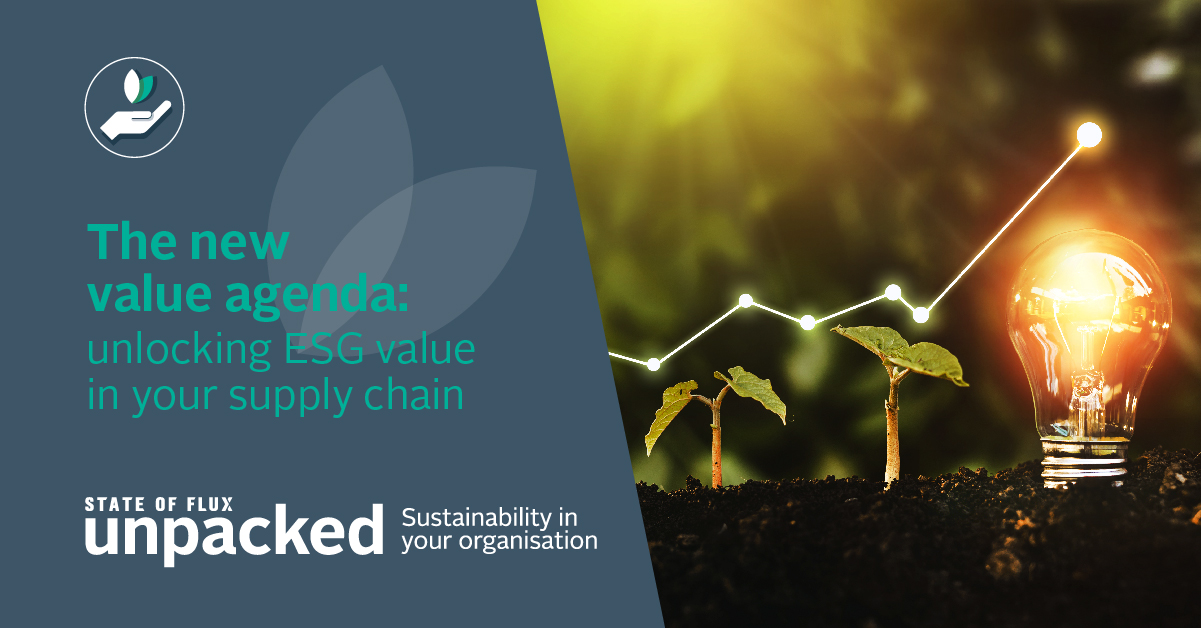
Unlocking ESG Value
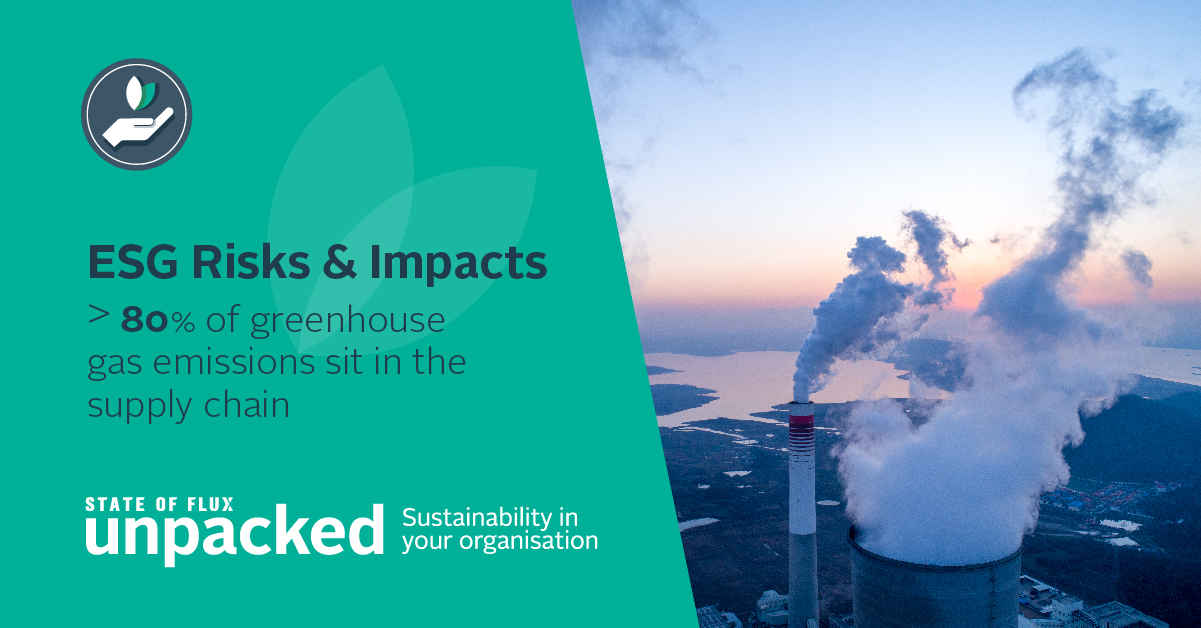
ESG Risks & Impacts
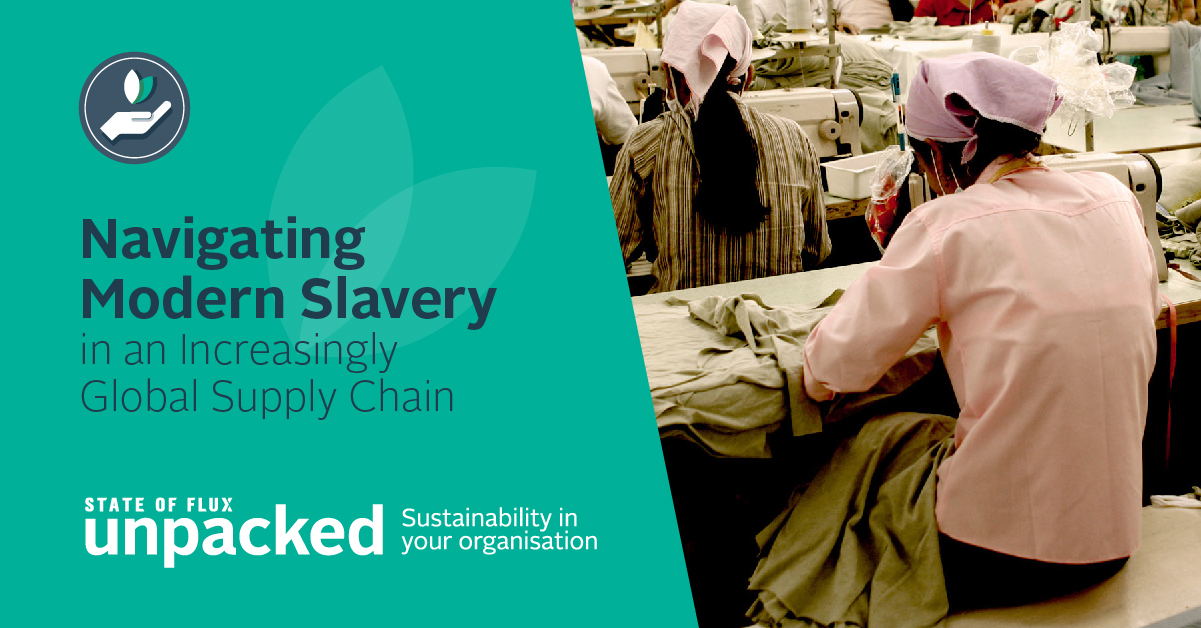
Navigating Modern Slavery in the supply chain
